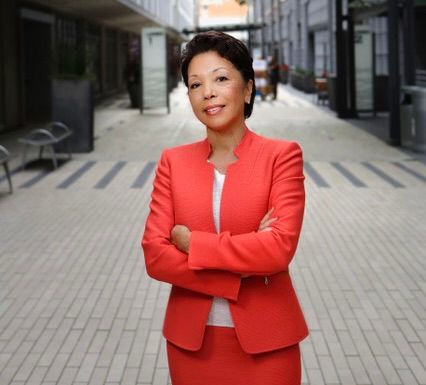Why health equity efforts need accountability
More leaders are focused on closing disparities. Caretha Coleman of the Black Directors Health Equity Agenda talks about the need for transparency and measuring progress.
Caretha Coleman is seeing broader and deeper conversations about health equity, which she says is an encouraging sign.
Caretha Coleman, board chairwoman of the Black Directors Health Equity Agenda, says accountability is critical to the success of efforts to improve access to care.

Coleman is the chairman of the board of the Black Directors Health Equity Agenda, a nonprofit organization focused on closing disparities in healthcare.
“I think the conversation is changing,” Coleman tells Chief Healthcare Executive®. “Number one, the conversation exists, with a broader set of people.”
Moreover, Coleman says she’s seeing people doing more than talking about ways to make care more equitable. She’s sensing a commitment to action and change, which was evidenced by a recent summit of her organization.
“People want to and are starting to take action,” Coleman says. “And they're willing to be held accountable.”
In a conversation with Chief Healthcare Executive®, Coleman says accountability is a key component to making health equity efforts succeed.
“If you believe in health equity, what does that mean? Put your money where your mouth is,” Coleman says. “So from an organizational standpoint, that has to do with people, resources, charters, evaluative measurement, goals, etc. And it all comes back to accountability.”
Hospitals and health systems need to look at their own leadership, Coleman says. And hospital boards play a critical role.
Coleman, a former board chairman and board member of Dignity Health, says boards need to be appointing the right leaders, and looking at diversity in the higher levels of their organizations. Boards need “to lead the charge in terms of asking the right questions of the leaders,” she says.
“It starts with that and being able to hold organizations and the leadership accountable for their commitment to health equity,” Coleman says.
Most healthcare leaders acknowledge health equity is a good objective, she says. But the next step is developing a real strategy and methods of measuring success.
“You say you've committed,” she says. “But what does that mean? And how do you operationalize that within your given organization? What is the overall agenda and strategy for getting there? Who are the people who are responsible for making it happen? What do they look like? And what cultural competencies do they bring to the table in order to change outcomes?”
Coleman also says measuring outcomes and being transparent with the results are important to make progress and build trust with communities.
“You know, it's that old adage: You measure the things that are important,” Coleman says. “I've been hearing, certainly from any number of people, that it's hard to measure. I would question that. It might take time to measure. But I don't know about the degree of difficulty.”
She also says that health systems need to pay attention to the composition of their workforce to ensure that employees, and leaders, reflect the diversity of the communities that they are aiming to serve.
When asked if some well-intentioned efforts to address inequities are undermined by a lack of diversity in leadership, Coleman says, simply, “In a word, yes.”
“Intentional or not, we are where we are,” she says. “And so now what we can be intentional about is recognizing it, and then saying and doing something about it, if we really believe it makes a difference. And I do believe it makes a difference.”
She also says organizations need to acknowledge the presence of systemic racism and its impact on health.
“Addressing systemic racism, the only way you can do that is by naming it,” she says. “If you say it doesn't exist, or it's not important, I feel like we don't have as much power to be able to make changes. We've got to say, yes, it exists. It may not be intentional. But the thing is, it still has an impact. And so what are we going to do about that?”
Health systems and hospitals need to recognize the social determinants of health affecting underserved communities, she notes. Those without a stable residence are focusing on where their families are sleeping tonight, and they aren’t thinking as much about their health needs. Plus, depending on a patient’s zip code, they may not be easily able to access the care they need.
“I have always been a believer that all roads of inequity ultimately lead to economics,” she says.
With more than four decades in the technology industry, Coleman says she is hopeful that AI can eventually lead to better care and more equitable care.
She acknowledges that the jury is still out on AI’s impact on health equity, but she sees more conversations about technology intertwined with healthcare. Since she is based in Silicon Valley, Coleman admits to possessing optimism about the prospects for AI in healthcare.
“The promise of AI is, not only will it give us better data, which will translate into better information, which will translate into having what we need to make better medical decisions and health decisions with and for people, but it will get us there faster, so that people don't have to hopefully suffer as long with certain conditions,” she says.